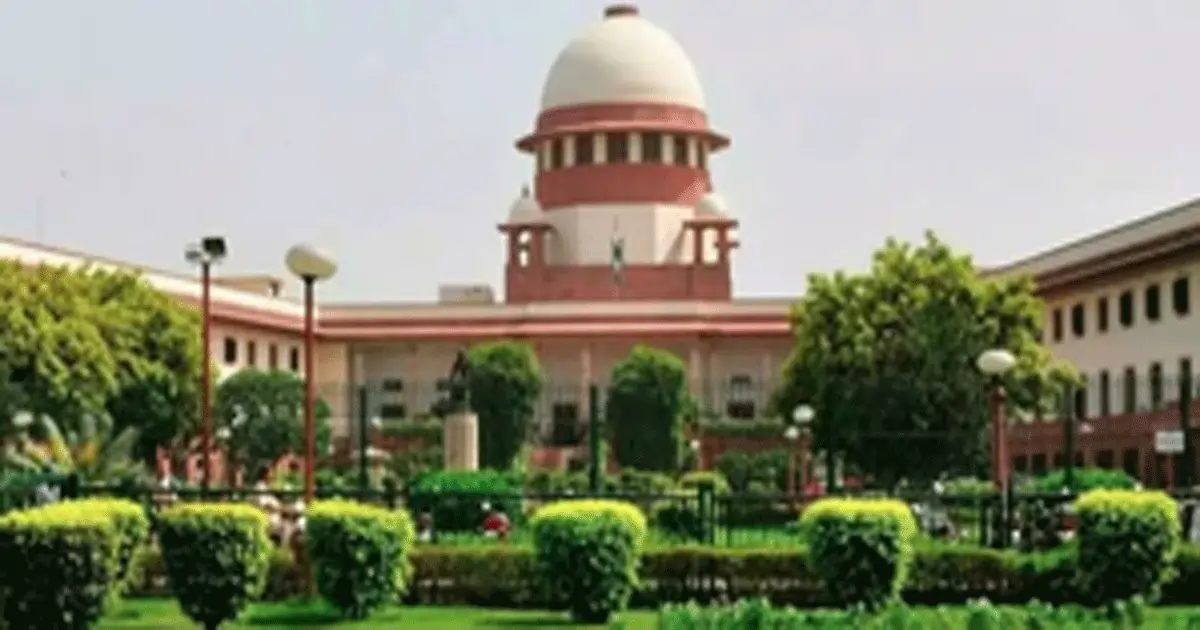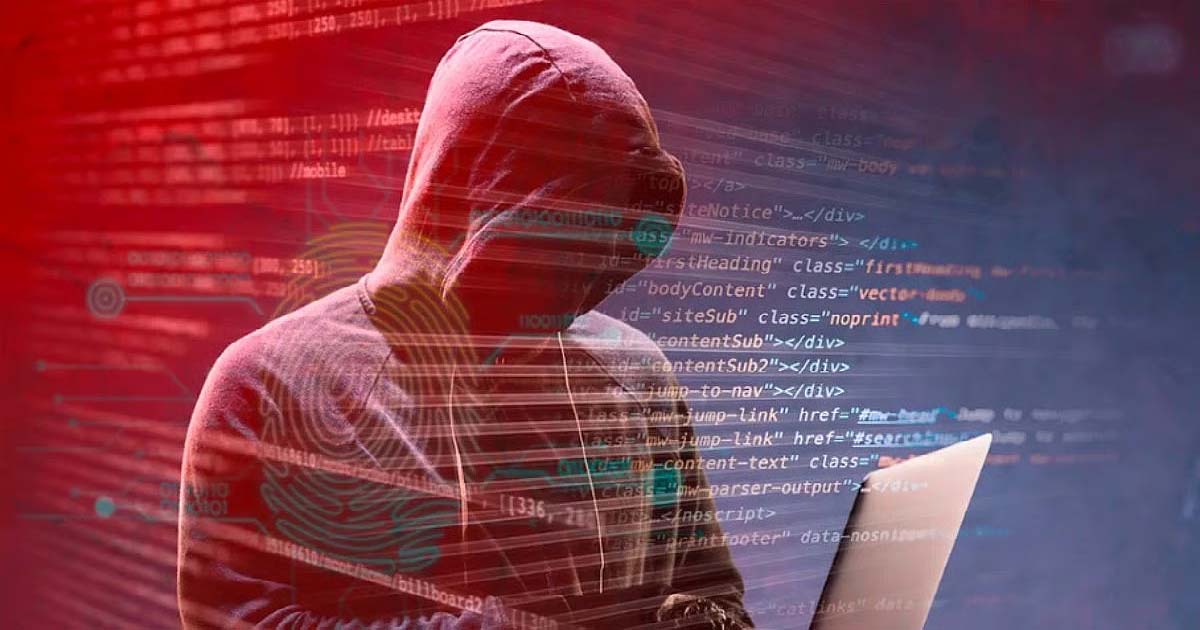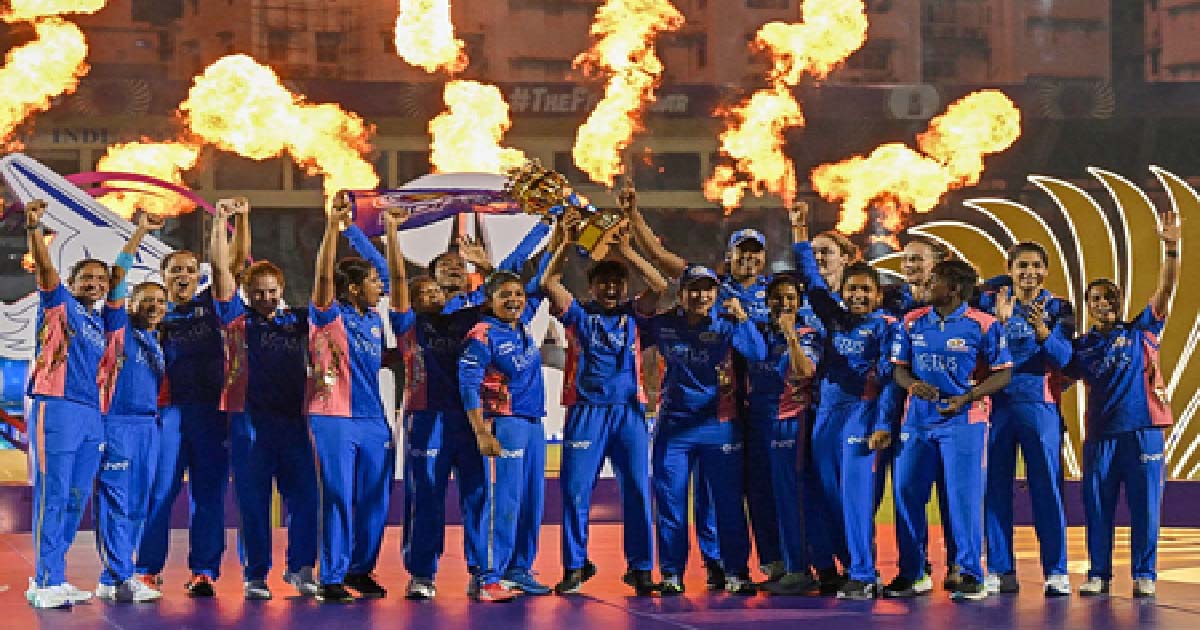National News
SC asks ECI to consider representation on voter turnout

New Delhi, March 18: The Supreme Court on Tuesday asked the Election Commission of India (ECI) to examine the issue of disclosure of the authenticated record of voter turnout on its official website within 48 hours after each phase of polling in Lok Sabha and State Assembly elections.
A bench, headed by CJI Sanjiv Khanna and comprising Justices Sanjay Kumar and K.V. Viswanathan, was dealing with a plea seeking a direction to the poll body to provide a tabulation of the constituency and polling station-wise figures of voter turnout in absolute numbers and in percentage after each phase of polling.
During the hearing, senior advocate Maninder Singh, appearing on behalf of the poll body, suggested that the petitioners could meet the newly appointed Chief Election Commissioner (CEC) for redressal of their grievances.
In view of the ECI’s submission, the CJI Khanna-led Bench deferred the hearing and asked the poll body to examine the petitioners’ representation.
Directing the petitioners to make a representation before ECI within 10 days, the apex court posted the matter for the next hearing in the week commencing July 28.
The plea was filed against the backdrop of the 2024 Lok Sabha elections, when the data, as published by the ECI in its press release dated April 30, 2024, showed a “sharp increase (by about 5-6 per cent) as compared to the initial percentages announced by ECI, as of 7 p.m. on the day of polling”.
“It is submitted that the inordinate delay in the release of final voter turnout data, coupled with the unusually high revision (of over 5 per cent) in the ECI’s press note of April 30, 2024, and the absence of disaggregated constituency and polling station figures in absolute numbers, has raised concerns and public suspicion regarding the correctness of the said data,” the plea said.
Referring to the voter turnout data published by the poll body on April 30, 2024, for the first two phases, after 11 days of the first phase of polling held on April 19, and 4 days after the second phase of polling held on April 26, the plea claimed “dereliction of duty” on part of the ECI in declaring election results (of the Lok Sabha and State Assemblies through Electronic Voting Machines), based on accurate and indisputable data which is put in the public domain.
The application added that these apprehensions must be addressed and put to rest, and in order to uphold the voter’s confidence, it is necessary that the ECI be directed to disclose on its website scanned legible copies of Form 17C Part- I (Account of Votes Recorded) of all polling stations which contains the authenticated figures for votes polled, within 48 hours of the close of polling.
In an affidavit filed before the top court, the ECI said that disclosing the scanned legible copies of accounts of votes recorded at all polling stations would cause “chaos” in the election machinery. The poll body added that the voter turnout App continuously keeps reflecting data on a live basis, and on the other hand, Form 17C is given to agents of candidates after the close of poll on polling day itself as per the statutory requirement.
Crime
Mumbai: 72-year-old Man Loses ₹35 Crore In Massive Trading Fraud, Alleges Brokerage Firm Misused Wife’s Account

Mumbai: A 72-year-old Mumbai resident has alleged that he lost an astonishing Rs 35 crore in a trading scam that spanned four years. Bharat Harakchand Shah, who lives in Matunga West, claims that Globe Capital Market Limited conducted unauthorised trades using his wife’s account, eventually leaving him with a massive debt he never knew existed.
Shah, who runs a low-rent guest house for cancer patients in Parel along with his wife, inherited a share portfolio from his father in 1984. With no understanding of stock markets, the couple never traded actively and kept their holdings untouched for decades.
The alleged fraud began in 2020. Following a recommendation from a friend, Shah opened Demat and trading accounts for himself and his wife with Globe Capital Market Limited, transferring the inherited shares to the brokerage.
At first, the arrangement seemed simple. Representatives from the firm contacted him regularly, assuring him that no additional investments were required and that the inherited shares could be safely used as collateral. Shah was told he would receive “personal guides” to help navigate the process.
Two company employees, identified as Akshay Baria and Karan Siroya, were assigned to manage his portfolio. According to the FIR, this was when they allegedly took full control of the couple’s accounts.
Shah said the two employees initially called every day, advising him on which orders to place. Soon, they began making home visits and even sent emails through their own laptops. He was instructed to share every OTP, open every SMS and email, and grant all permissions.
Believing he was following official instructions, Shah unknowingly allowed the firm to operate freely. He remained unaware that extensive trades were being conducted in his and his wife’s names.
Between March 2020 and June 2024, Shah received annual statements showing consistent profits. With nothing amiss on paper, he had no reason to doubt the firm’s actions.
Everything changed in July 2024 when Globe Capital’s Risk Management Department called him, informing him that he and his wife owed Rs 35 crore due to a large debit balance. He was warned that his shares would be sold immediately if the amount was not paid.
Distressed, Shah visited the firm’s office where he learned for the first time that unauthorised trades, including circular trading, had caused his portfolio to collapse. Shares worth crores had already been sold.
Fearful of losing his remaining assets, Shah sold the leftover shares and cleared the entire Rs 35 crore debt. He later transferred the remaining holdings to a different brokerage.
When he downloaded the original transaction statements from the company’s website, Shah noticed major discrepancies compared to the profit statements emailed to him for four years. He also discovered that the brokerage had responded to multiple NSE notices using his name—without ever informing him.
“For four years, the company presented us with a false picture, while the actual losses continued to mount,” Shah said.
Shah filed an FIR at the Vanrai police station. The case, registered under IPC sections 409 (Criminal Breach of Trust) and 420 (Cheating), has now been handed over to the Mumbai Police’s Economic Offences Wing for a detailed probe.
He has described the episode as an “organised financial fraud”, hoping the investigation will uncover how such large-scale unauthorised trading went unnoticed for years.
Business
Job postings in India stay above pre-Covid pandemic levels: Report

New Delhi, Nov 27: Formal job creation in India softened in the month of October but despite this, job postings remained above the pre-Covid pandemic level, a report said on Thursday.
“Amid slowdown, Indian job postings are still 60 per cent above pre-pandemic levels, but have fallen 25 per cent since their peak in January 2023,” Indeed, a leading hiring platform, said in its report.
Over the past three months, job postings declined in almost three-quarters of occupations. Yet in a softening job market, there will still be some strong performers, and the past three months have been no exception, said the report.
Job postings in cleaning and sanitation rose around 20 per cent over the past three months, ahead of community and social service (17.4 per cent), dental (13.1 per cent), nursing (11.2 per cent) and food preparation and service (10.3 per cent).
Another positive was the posting for human resources, which climbed 2.3 per cent.
However, these gains were more than offset by weakness in banking and finance, where postings fell 25.6 per cent, along with legal (-22.4 per cent), retail (-16.7 per cent) and loading and stocking (-15 per cent), the report noted.
Every month, the Indian workforce gradually transitions towards more formal work arrangements. As the nation transitions, job creation in the formal sector is expected to outpace overall employment growth nationwide, said Callam Pickering, Indeed’s APAC Senior Economist.
“This transition is also why job postings in India have been stronger than in other Indeed markets, both during the post-pandemic job boom and the subsequent slowdown,” he added.
Meanwhile, during the month, 9.1 per cent of Indian job postings explicitly mentioned phrases such as ‘work from home’ or ‘work remotely’ in their job descriptions. That’s up from 7.6 per cent a year ago.
Remote opportunities are most common in IT infrastructure, operations and support at 18.2 per cent of postings in the October quarter 2025, ahead of community & social service (15.1 per cent) and industrial engineering (14 per cent).
National News
WPL 2026 to take place from Jan 9 to Feb 5 in Navi Mumbai and Vadodara

New Delhi, Nov 27: Navi Mumbai and Vadodara are the venues for the 2026 Women’s Premier League, to be held from January 9 to February 5. The tournament will open at the DY Patil Stadium in Navi Mumbai, while the final is scheduled to be held at Kotambi Stadium in Vadodara.
The announcement was made by WPL Committee Chairman Jayesh George before the competition’s first-ever mega auction began in New Delhi on Thursday. IANS understands that the WPL Committee had a meeting at the auction venue around noon to finalise the dates and venues, with the full schedule expected to come out soon.
As per the dates announced by George, the fourth WPL final will be held two days before the 2026 Men’s T20 World Cup begins in India and Sri Lanka. IANS understands that the rationale behind keeping the second half of WPL 2026 in Vadodara is also due to the Kotambi stadium being set to host the men’s ODI series opener between India and New Zealand on January 11.
Vadodara was one of the four hosts for WPL in 2025 and now sees getting the entire second half as well as the knockout stages, including the all-important title clash. The tournament will also mark the return of women’s cricket in the WPL for the first time after India won the 2025 Women’s ODI World Cup on November 2.
For now, the focus of all five teams – two-time champions Mumbai Indians, 2024 winners Royal Challengers Bengaluru, three-time runners-up Delhi Capitals, UP Warriorz and Gujarat Giants – will be to make a trophy-winning squad for the 2026 season.
At the mega auction, India’s ODI World Cup-winning captain Harmanpreet Kaur is present at the MI table, alongside Jhulan Goswami, new coach Lisa Keightley, and team owners. DC have a star-studded line-up in head coach Jonathan Batty and director of cricket Sourav Ganguly.
New UPW head coach Abhishek Nayar and mentor Lisa Sthalekar are present, while Pravin Tambe and Michael Klinger are representing GG and RCB has newly appointed assistant coach Anya Shrubsole on the table alongside head coach Malolan Rangarajan.
-

 Crime3 years ago
Crime3 years agoClass 10 student jumps to death in Jaipur
-

 Maharashtra1 year ago
Maharashtra1 year agoMumbai Local Train Update: Central Railway’s New Timetable Comes Into Effect; Check Full List Of Revised Timings & Stations
-

 Maharashtra1 year ago
Maharashtra1 year agoMumbai To Go Toll-Free Tonight! Maharashtra Govt Announces Complete Toll Waiver For Light Motor Vehicles At All 5 Entry Points Of City
-

 Maharashtra1 year ago
Maharashtra1 year agoFalse photo of Imtiaz Jaleel’s rally, exposing the fooling conspiracy
-

 National News1 year ago
National News1 year agoMinistry of Railways rolls out Special Drive 4.0 with focus on digitisation, cleanliness, inclusiveness and grievance redressal
-

 Maharashtra1 year ago
Maharashtra1 year agoMaharashtra Elections 2024: Mumbai Metro & BEST Services Extended Till Midnight On Voting Day
-

 National News1 year ago
National News1 year agoJ&K: 4 Jawans Killed, 28 Injured After Bus Carrying BSF Personnel For Poll Duty Falls Into Gorge In Budgam; Terrifying Visuals Surface
-

 Crime1 year ago
Crime1 year agoBaba Siddique Murder: Mumbai Police Unable To Get Lawrence Bishnoi Custody Due To Home Ministry Order, Says Report












